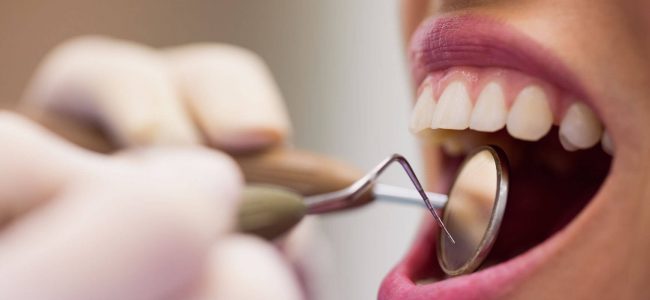Even as young children, we learn that sugar is not good for your teeth. It’s not always clear why that is a thing, though. It turns out bacteria are the culprit. What more should you know about how sugar affects your teeth?
A Lot Is Going On in Your Mouth
Specifically, your mouth is full of bacteria. Often, they serve a purpose – to break down food and debris. In that way, they help to keep your teeth and gums healthy.
There are some destructive kinds of bacteria there. Like many systems in the body, good bacteria battle bad, keeping both sides in check. That doesn’t keep the harmful bacteria from feeding on sugar, though.
How Sugar Affects Bacteria
Certain bacteria in the mouth feed on sugar. When they do, it produces an acid that can damage the enamel on your teeth. Saliva washes away a tiny amount of acid before becoming a problem.
Eating large amounts of sugar means there is more for bacteria to feed on, leading to more acid. When it exceeds that amount that saliva can wash away, it sticks on the teeth in the form of plaque.
The continual cycle of acid assaults on your teeth produces a mineral loss in the enamel; this acid weakens and destroys the enamel over time, resulting in decay and the formation of a cavity.
If the cavity is not addressed, it can expand into the deeper layers of the tooth, causing discomfort and perhaps tooth loss. A toothache, pain when chewing, and sensitivity to sweet, hot, or cold foods and drinks are all symptoms of tooth decay.
Sugar Changes the PH of the Mouth
PH is a scale that measures how acidic or basic something is — as in the environment inside the mouth. Sugar disrupts the natural pH there because bacteria feed on it and produce acid that creates a shift from normal pH to more acidic. That imbalance invites more harmful bacteria to the mouth. In this way, eating sugar attracts the wrong kind of bacteria.
Is All Sugar Created Equally?
Sugar generally means exactly what it sounds like – candy, soda, sweet energy drinks, and juice. Sugar can also mean carbohydrates from processed foods such as potato chips or crackers.
For a healthier mouth, focus your diet on:
- Whole grains
- Fresh fruits
- Vegetables
- Dairy
These foods reduce the amount of sugar you eat and provide nutrients that help keep teeth and gums healthy. For example, calcium in dairy products helps strengthen enamel.
Eating fresh fruits and vegetables, especially raw, also stimulates your body to produce more saliva. That will help wash away any acid from bacteria and prevent plaque build-up.
If you opt for the occasional sugary beverage, consider drinking it through a straw. This directs the sugar away from teeth.
Along with these diet changes, make sure to see your nearest Ideal Dental regularly for professional teeth cleaning. This removes tartar, which is plaque that builds up the teeth and then hardens. Find your local Ideal Dental office today to schedule your appointment.
